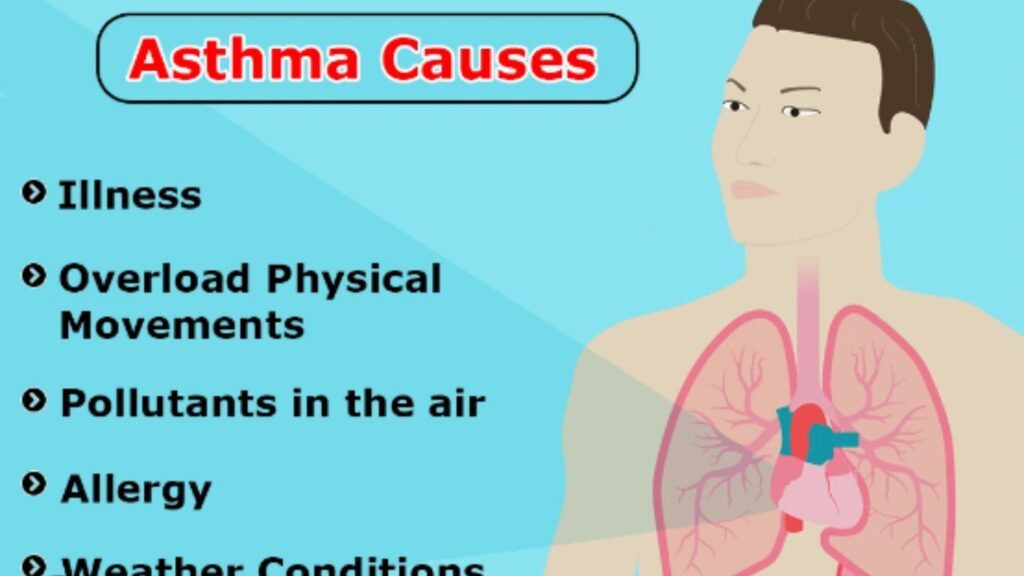Asthma is a chronic respiratory disease that affects the lungs and airways, causing inflammation and constriction of the airways, which makes it difficult to breathe. According to the World Health Organization (WHO), an estimated 235 million people suffer from asthma worldwide. Asthma can affect people of all ages, but it most commonly starts in childhood. In this blog post, we will discuss the causes, triggers, and treatment options for asthma.
Causes of Asthma:

The exact cause of asthma is unknown, but it is believed to be a combination of genetic and environmental factors. People with a family history of asthma are more likely to develop the condition. Additionally, exposure to certain environmental factors such as pollution, smoke, and allergens can trigger asthma symptoms. Studies have also shown that respiratory infections, such as colds and the flu, can increase the risk of developing asthma.
Triggers of Asthma:

Asthma triggers are factors that can cause asthma symptoms to worsen. These triggers vary from person to person and can include:
- Allergens: Common allergens such as dust mites, pollen, and animal dander can trigger asthma symptoms in some people.
- Irritants: Chemical irritants such as air pollution, cigarette smoke, and strong odors can irritate the airways and trigger asthma symptoms.
- Exercise: Exercise-induced asthma occurs when physical activity triggers asthma symptoms. This can occur in people with or without pre-existing asthma.
- Cold air: Cold air can cause the airways to constrict, making it difficult to breathe.
- Respiratory infections: Respiratory infections such as colds, flu, and pneumonia can trigger asthma symptoms.
- Stress: Emotional stress and anxiety can trigger asthma symptoms in some people.
Treatment Options for Asthma:
There are several treatment options available for asthma, including:
Medications:
The most common medications used to treat asthma include inhaled corticosteroids, bronchodilators, and leukotriene modifiers. These medications help reduce inflammation and open up the airways, making it easier to breathe.
Lifestyle changes:
Lifestyle changes such as avoiding triggers, quitting smoking, and maintaining a healthy weight can help reduce the frequency and severity of asthma symptoms.
Breathing exercises:
Breathing exercises such as diaphragmatic breathing, pursed lip breathing, and deep breathing can help reduce the severity of asthma symptoms.
Conclusion:
Asthma is a chronic respiratory disease that can significantly impact the quality of life of those affected by it. While the exact cause of asthma is unknown, a combination of genetic and environmental factors can trigger the condition. Avoiding triggers, taking medications as prescribed, and maintaining a healthy lifestyle can help reduce the frequency and severity of asthma symptoms. If you or a loved one is experiencing symptoms of asthma, it is important to seek medical attention and develop a treatment plan with a healthcare professional.

